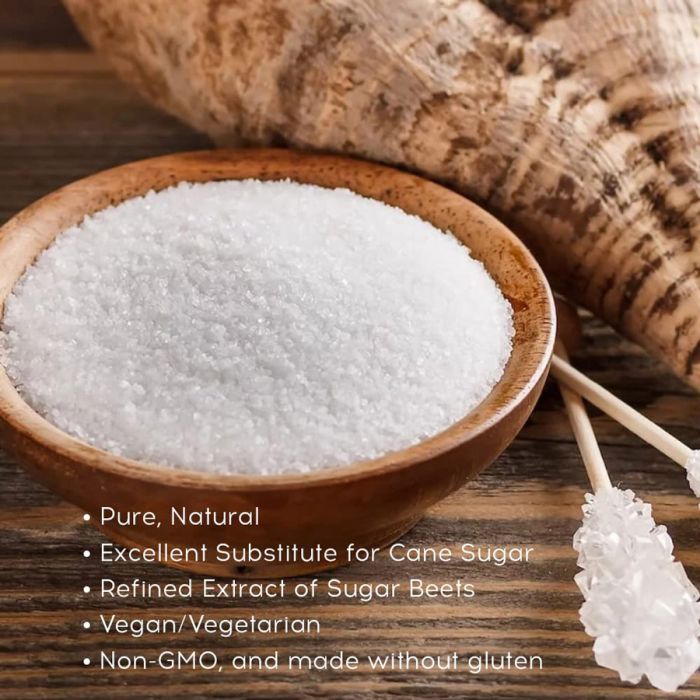The debate on beet sugar vs cane sugar often is about manufacturing processes and composition.
The debate on beet sugar vs cane sugar often is about manufacturing processes and composition.
Blog Article
Exploring the Distinctions being used and Advantages In Between Beet Sugar Vs Cane Sugar
In the cooking globe, the option in between beet sugar and cane sugar is not simply concerning sweetness but entails a nuanced factor to consider of taste, application, and impact. While both sugars stem from different plants, each undergoes one-of-a-kind manufacturing processes that subtly influence their characteristics and suitability for various meals.
Origins and Production Processes of Beet and Cane Sugar

Cane sugar, on the other hand, comes from the sugarcane plant, an exotic turf native to Southeast Asia yet now cultivated in exotic areas worldwide - beet sugar vs cane sugar. The manufacturing of cane sugar starts with the harvesting of cane stalks, which are crushed to release the juice.

Nutritional Content and Health Considerations

When contrasting the nutritional content of beet sugar and cane sugar, it comes to be obvious that both kinds essentially provide the exact same calorie values, with about 16 calories per tsp and no substantial nutrient diversity. Both sugars, when eaten in excess, can contribute to elevated blood sugar degrees, a danger variable for diabetes and various other metabolic problems. From a health viewpoint, moderating intake of any type of kind of sugar, whether from beet or cane, is advisable to avoid these prospective negative impacts on well-being.
Taste Profiles and Culinary Applications
In spite of their comparable chemical structures, beet sugar and cane sugar differ subtly in flavor, which can affect their use in numerous culinary contexts. Cane sugar commonly brings a tip of molasses, even in its polished kind, providing a warm, caramel-like touch that improves baked goods, coffee, and chocolate-based recipes. On the other hand, beet sugar is characterized by its extremely fine-tuned, neutral taste, making it a functional sugar that does not alter the taste accounts of recipes.
Environmental Influence and Sustainability
While both beet and cane sugars are derived from plants, their ecological effects vary considerably as a result of the distinctive approaches of growing and processing needed for each. Sugar beet farming typically involves considerable automation, which can boost fossil gas consumption and carbon check this emissions. Beetroots can be expanded in cooler environments and call for much less watering, possibly decreasing water usage compared to sugarcane. Sugarcane, on the various other hand, is normally grown in exotic regions where it relies heavily on irrigation and a much longer growing period, enhancing its water impact.
Additionally, the handling of sugarcane typically creates a substantial quantity of waste, including bagasse, which, although functional as biofuel, often adds to air contamination if burned inefficiently. Sugar beet handling uses more of the raw materials, leading to less waste. Both markets face obstacles in decreasing their ecological impacts, yet recurring technologies in farming practices and waste monitoring are intending to enhance sustainability.
Economic Aspects Affecting the Sugar Sector
The economic dynamics of the sugar industry are considerably influenced by global market needs and trade click resources plans. Elements such as tolls, aids, and worldwide profession contracts play essential roles fit the affordable landscape. In regions where sugarcane or sugar beet production is subsidized, producers might have a monetary advantage that enables view website them to provide reduced rates on the global market. This can produce disparities in productivity and market accessibility for manufacturers in countries without such subsidies.
Additionally, variations in global need for sugar, influenced by nutritional trends and commercial use in food, directly impact costs and manufacturing degrees. beet sugar vs cane sugar. Climate condition likewise play a crucial role, as they can substantially influence crop yields and, consequently, the supply chain. This variability introduces a degree of financial unpredictability that can lead to investment volatility in sugar production sectors, influencing choices from planting to market technique
Conclusion
In conclusion, both beet and cane sugar have distinct top qualities that fit various cooking demands. While cane sugar conveys a rich flavor ideal for improving baked items, beet sugar's neutrality is ideal for lighter meals.
Report this page